If your cat seems scared of their litter box, you're not alone. This common feline behavior can be distressing, but it's solvable.
There are many reasons why cats may fear their litter box, from health issues to environmental triggers.
It's crucial to identify the cause to help your cat feel safe again. This guide will help you navigate your cat's litter box anxiety.
Keep an eye on your cat's behavior, and with patience and understanding, you can help your cat use their litter box stress-free.
Common Reasons for Litter Box Aversion
Cats can be pretty peculiar creatures, and sometimes their behavior may seem inexplicable.
One such behavior may be your cat acting scared of the litter box. Don't fret! Let's take a closer look at some possible reasons behind this behavior.
Scent or Unclean Litter Box
Cats are very sensitive to smells, and they use scent as a way to communicate with other felines.
If your litter box isn't as clean as it should be, your cat might feel uneasy.

Make sure to keep a clean litter box by scooping it daily and changing the litter regularly.
This can help your cat feel more comfortable and prevent aversions to using it.
Threatened Territory
Cats are territorial creatures, and if they feel their territory is threatened, they may avoid using their litter box.
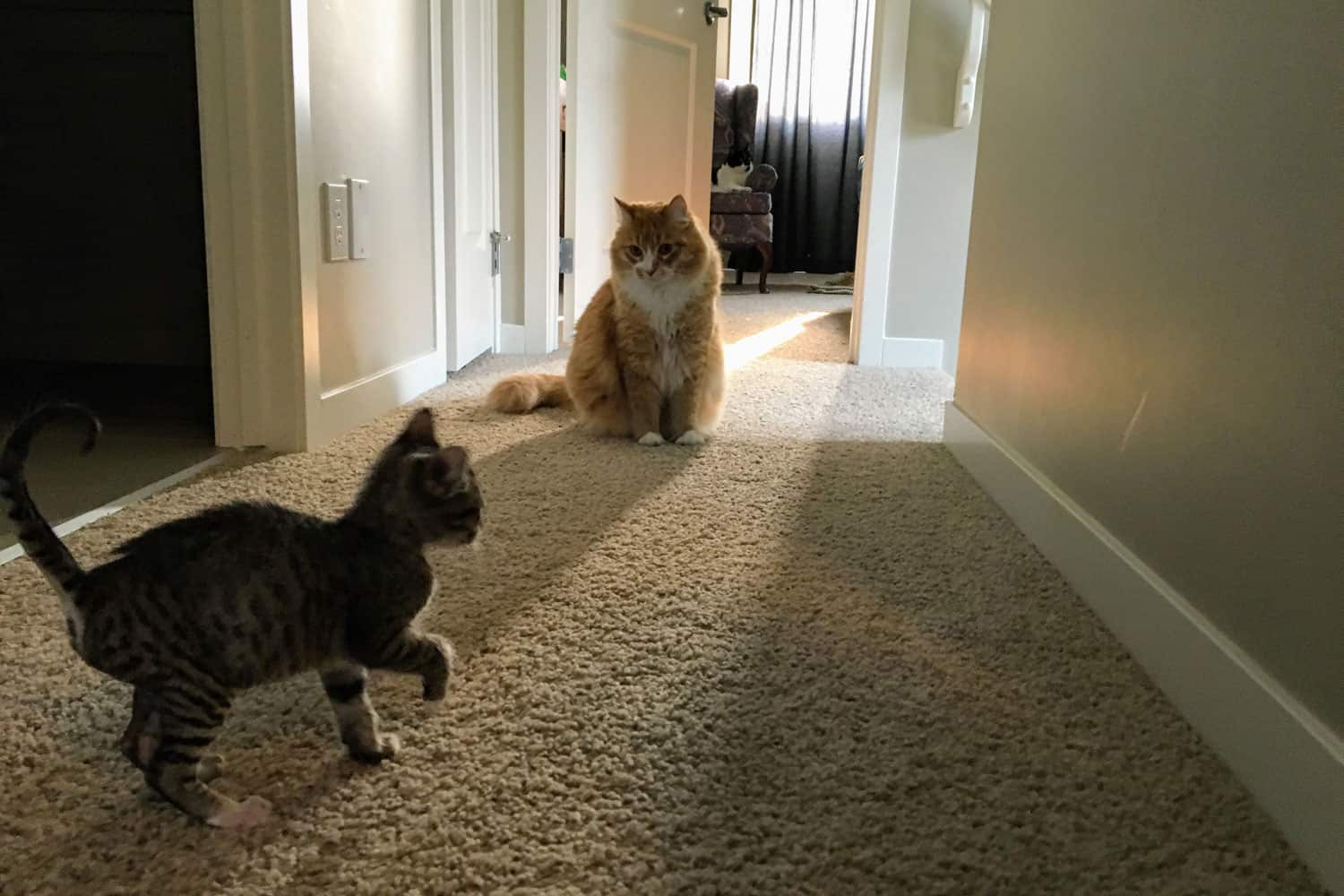
Ensure other household animals don't have access to your cat's litter box to provide a sense of security for your feline.
Litter Box Factors
There are numerous factors associated with the litter box that can influence your cat's comfort and usage.
The avoidance of the litter box can often be traced back to these elements.
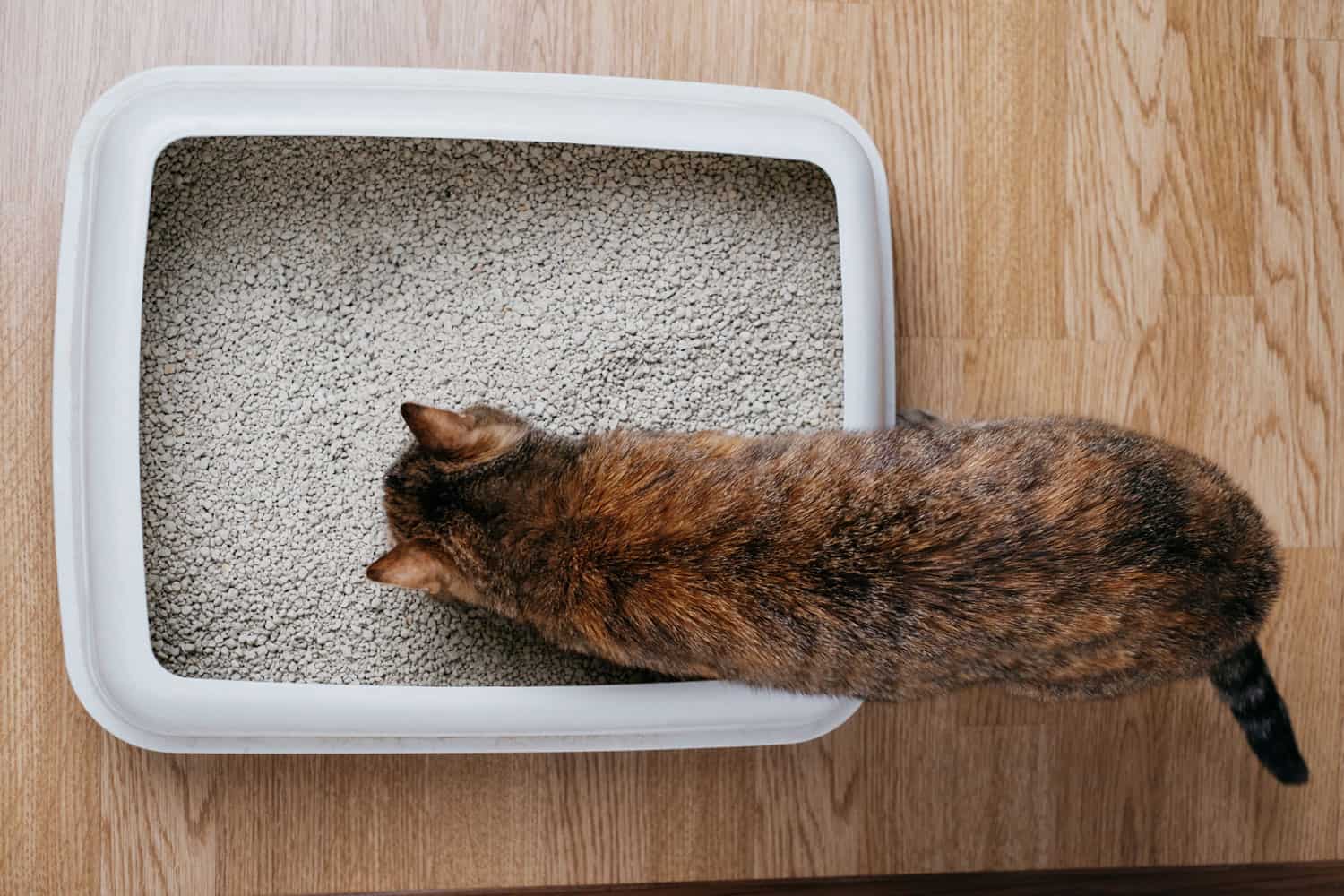
Paying attention to these aspects and making appropriate adjustments can make a significant difference in your cat's behavior and stress levels.
Size and Hood
Ever found your cat hesitating by the litter box? One common reason could be the size or design of the box itself.
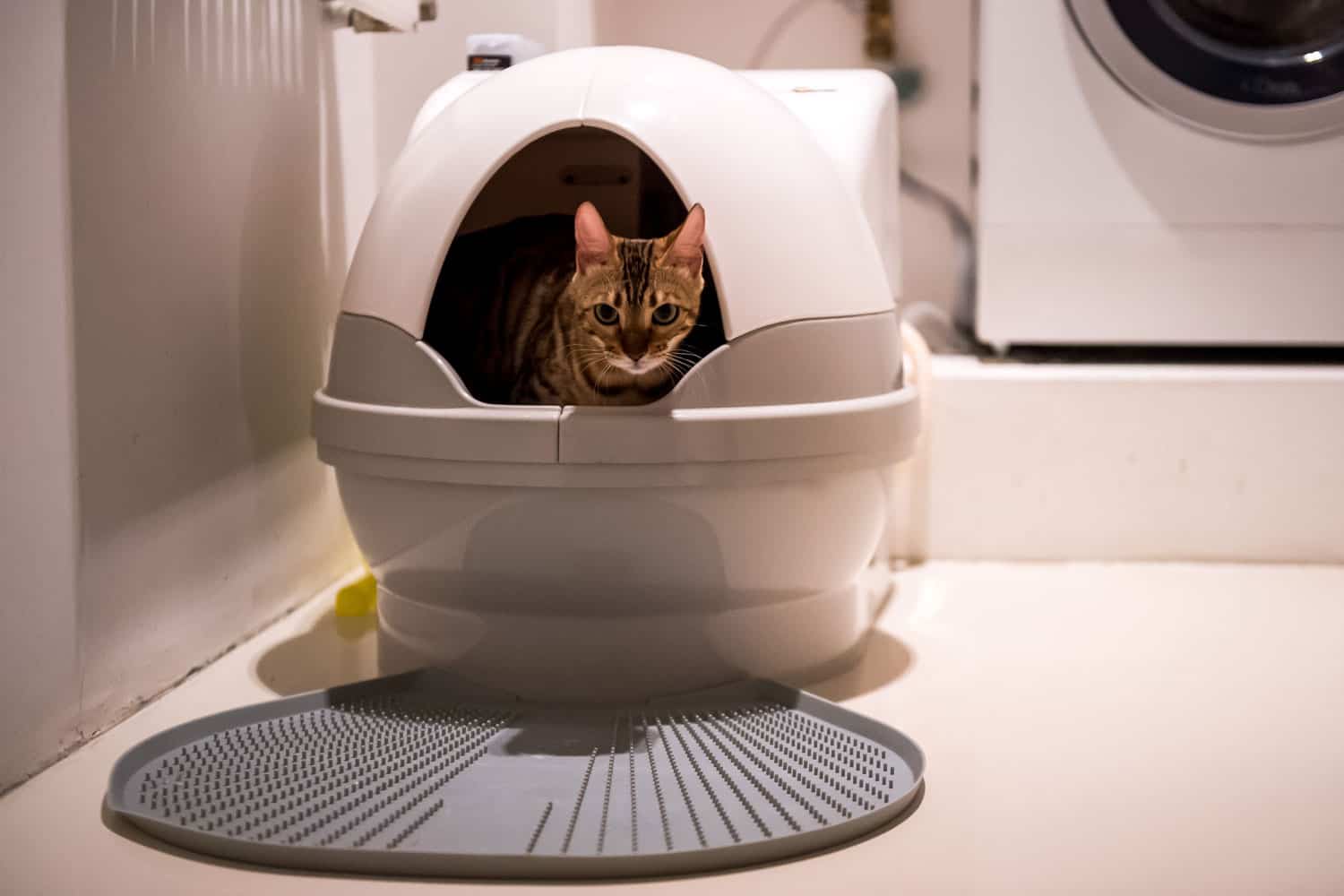
If the box is too small or has a hood that makes entry difficult, your cat might feel cramped and unsafe.
Click here to see this hooded cat litter box on Amazon.
A larger litter box with easy access can make a big difference.
Click here to see this extra-large litter box on Amazon.
Opt for a spacious, open design that gives your cat plenty of room to move around and find its preferred spot.
Litter Type and Texture
Another aspect affecting your cat's comfort is the choice of litter.
Some cats may dislike a particular litter type or texture, rejecting soft litter or disliking the feel of large granules.
Click here to see this soft litter on Amazon.
Experimenting with different types of litter can help you find one that appeals to your cat's preferences.
Additionally, gradually adjusting to a new texture or changing the litter more frequently can ease the transition.
Location
A litter box's location can greatly impact your cat's comfort and willingness to use it. Cats prefer a quiet, low-traffic area where they feel secure.
Avoid placing the box near noisy appliances or in mail hallways.
Automatic or Self-Cleaning Litter Boxes
While automatic litter boxes can be a convenient option for some pet owners, they might not be suitable for every cat.
Click here to see this automatic litter box on Amazon.
The noise and sudden movements from self-cleaning mechanisms may startle cats and create anxiety.
For sensitive feline friends, traditional litter boxes provide a more familiar and less intimidating experience.
Medical Conditions
Sometimes, your cat's litter box avoidance stems from an underlying medical issue. Common medical conditions that can cause this behavior include:
Urinary Tract Infections (UTIs)
If a cat has a UTI, it may associate the litter box with the pain while urinating, causing them to avoid it.
Feline Interstitial Cystitis
This bladder inflammation can cause your cat discomfort and increased frequency of urination, leading to litter box aversion.
Kidney Stones and Bladder Stones
These painful conditions can make urination uncomfortable for your cat, causing them to avoid the litter box.
Diabetes
A cat with diabetes may need to urinate more frequently, making it difficult for them to always reach the litter box in time.
Constipation
Another medical problem that may cause litter box troubles is constipation, as your cat may associate the litter box with discomfort.
If your cat suffers from a medical issue or you notice any changes in your cat's behavior, it's essential to consult your veterinarian immediately.
Stress and Environmental Factors
Your cat may also be stressed, manifesting fear of the litter box.
Changes in the household, like new furniture, a new family member, or even kittens, can stress out your cat.
To help alleviate this, provide a comfortable and safe environment for your cat by giving them a designated space for relaxation.
Helping Your Cat Overcome Fear of the Litter Box
With a little effort and understanding, you can help your cat feel more comfortable using their designated bathroom area.
Patience and Consistency
Remember, adopting new habits takes time. You should be patient with your cat as they adjust to the litter box.
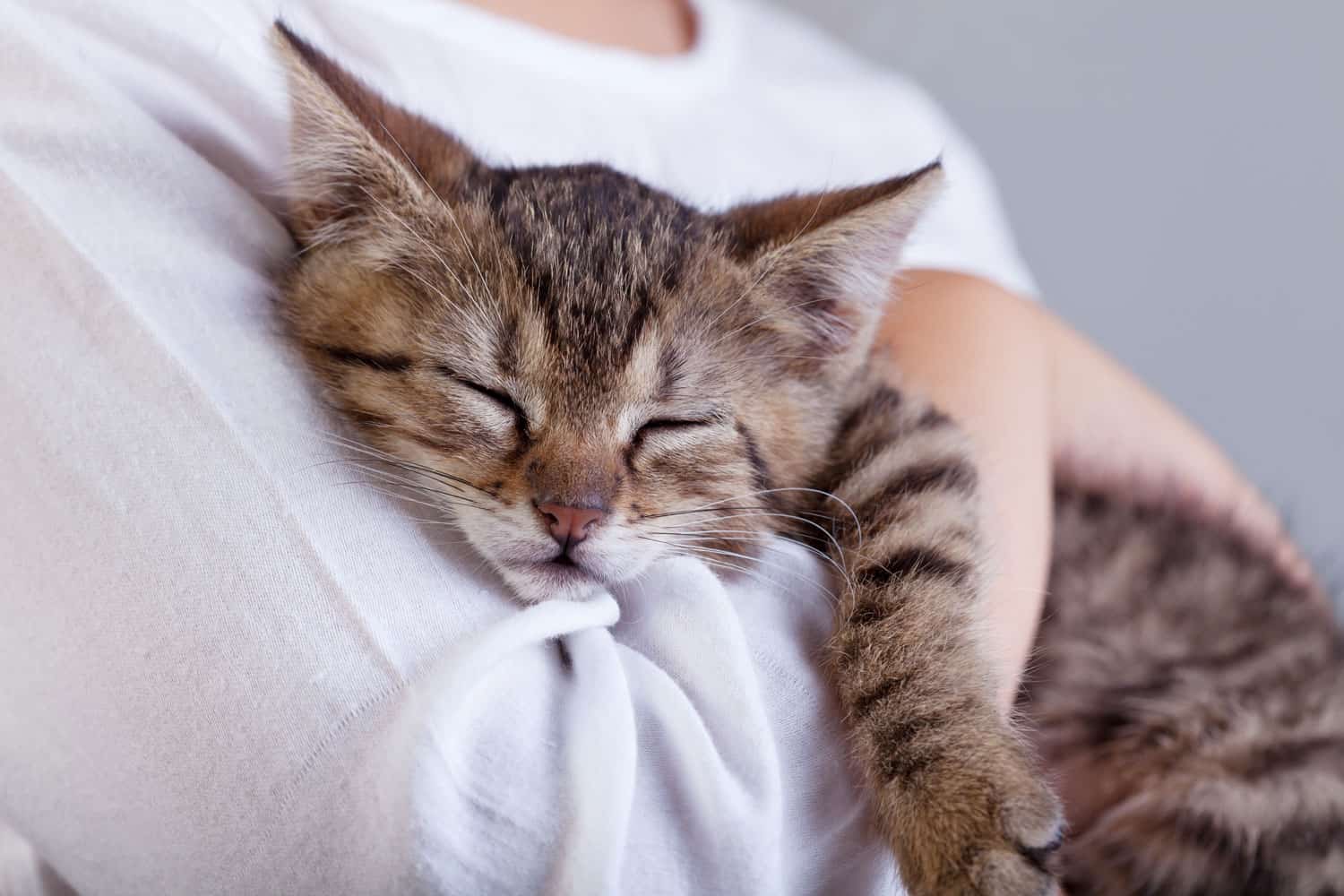
If you recently introduced a self-cleaning litter box, your cat may require additional time to grow accustomed to the new device.
Maintain a consistent routine for cleaning and replacing the litter.
Also, be sure to communicate calmly with your cat to help build their confidence around the litter box.
Providing Multiple Litter Boxes
In some cases, having multiple litter boxes can alleviate your cat's fear.
You might have more than one cat, so multiple litter boxes positioned in various areas can minimize the possibility of territorial disputes.
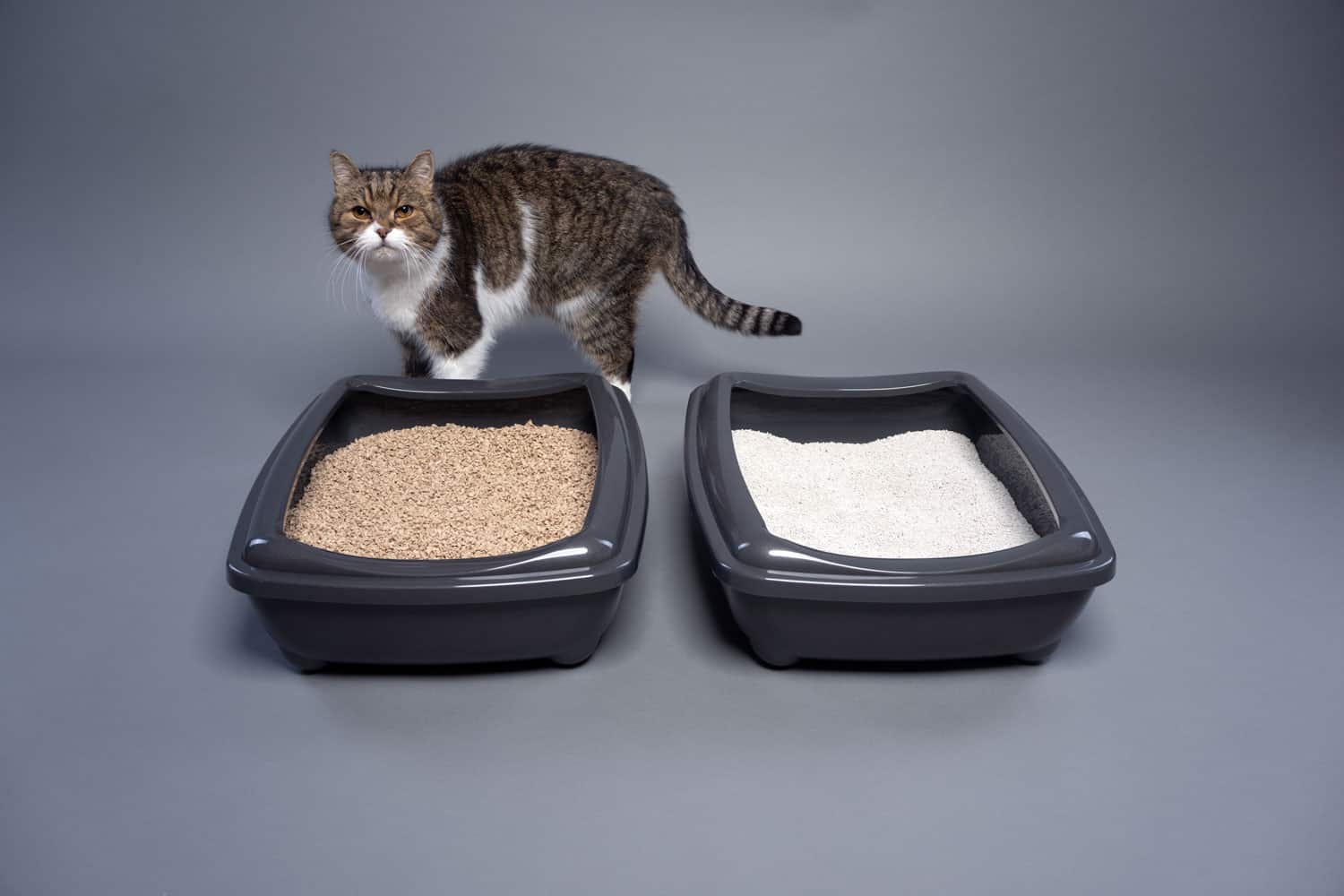
Or else, your cat could just prefer having options.
Make sure to place each litter box in a quiet, low-traffic area of your home. This allows your cat to choose a litter box where they feel the most comfortable and safe.
Positive Reinforcement
Encourage your cat's use of the litter box with positive reinforcement. Praise your cat verbally or offer a treat whenever they successfully use the box.
Click here to see this canister of treats on Amazon.
This will not only help to build a positive association with the litter box but also strengthen your bond with your feline friend.
The Litter Box Mystery Resolved
To sum up, your cat's fear around the litter box can stem from various factors.
To resolve this, observe your cat closely and make adjustments as necessary. Your cat depends on you to create a comfortable environment.
Small changes can greatly improve their litter box experience.
With patience and dedication, you can alleviate their fears and enjoy a harmonious relationship with your cat.
Discover more valuable information below about this litter box for your cat's benefit.








